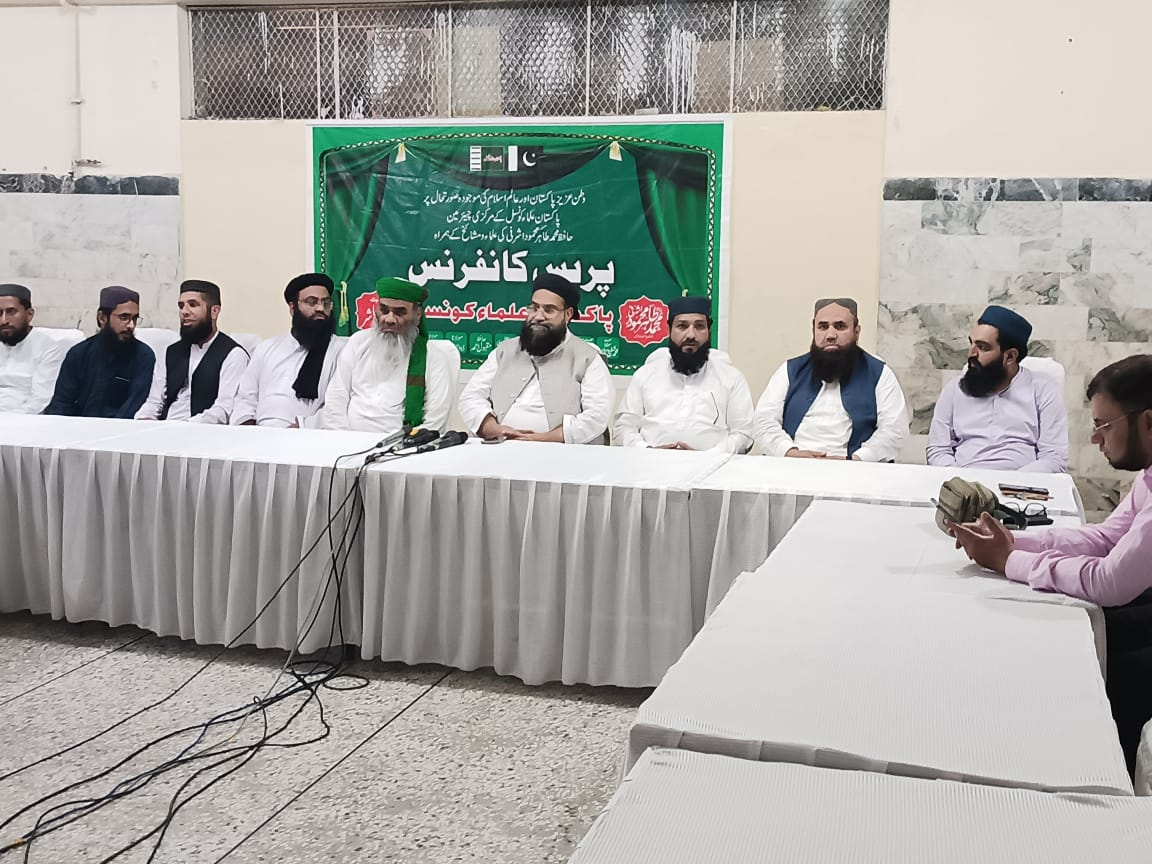Pakistan Ulema Council (PUC) Chairman, Hafiz Muhammad Tahir Mehmood Ashrafi, addressing the ongoing challenges of violent extremism in Pakistan, emphasized the urgent need for fostering dialogue across various societal factions on Thursday.
Speaking at a national seminar ‘Countering Violent Extremism’, organized by Islamabad Policy Research Institute (IPRI), he said this call for dialogue would reduce misunderstandings and create an environment of mutual respect among different groups, promoting a more harmonious and resilient community.
Ashrafi further highlighted the importance of implementing Paigham-e-Pakistan, a comprehensive doctrine designed to bridge gaps between different schools of thought and unify religious scholars and leaders in a joint effort to combat extremism across the nation. “This collaborative strategy is seen as vital for ensuring long-term peace and stability not only in the country but also in the region,” he added.
Addressing the misuse of religious decrees, Ashrafi called for the establishment of a mechanism for issuing Fatwas on matters of public importance. Citing the examples of Dar-ul-Ifta institutions in Saudi Arabia and Egypt, he emphasized the need for a government-level oversight to ensure that religious decrees are issued responsibly and effectively.
He said Dar-ul-Ifta Saudi Arabia and Dar-ul-Ifta Egypt were renowned for their systematic approach to issuing Fatwas as these institutions employ qualified scholars who deliberate on religious matters in a methodical manner, providing well-considered and balanced religious opinions. He suggested that Pakistan could benefit from adopting a similar model, which would help mitigate the risks associated with arbitrary and unqualified Fatwas that can incite violence and extremism.
Ashrafi proposed taking action against those who issue Fatwas contrary to Shariah, the Quran, and the Sunnah.
He urged religious and political leaders to transcend personal interests for the greater good of society. He called for a united effort to create an enabling environment that promotes the equitable growth of all community members.
Ashrafi underscored the importance of collaboration and selflessness among leaders to foster social harmony and counteract extremism. By prioritizing collective well-being over individual gains, he said leaders could contribute to a more inclusive and peaceful society. He opined that this approach was essential for addressing the root causes of extremism and building a resilient society capable of withstanding divisive influences.
In his concluding remarks, he emphasized the urgent need for expeditious judicial proceedings in cases related to blasphemy and violent attacks on minority communities. “Swift hearings are crucial to prevent prolonged injustice and to send a clear message that such acts of violence and discrimination will not be tolerated, reinforcing the rule of law and upholding the principles of equality and human rights,” he maintained.

